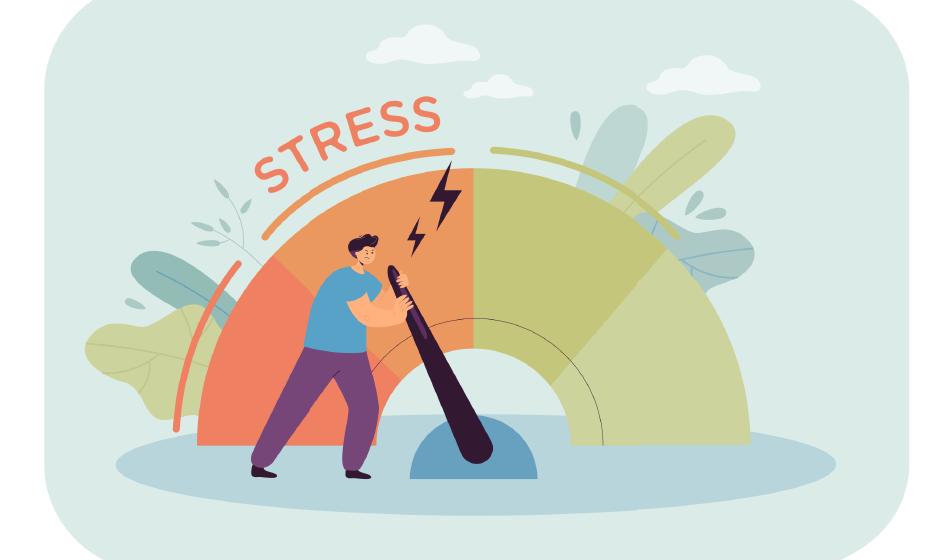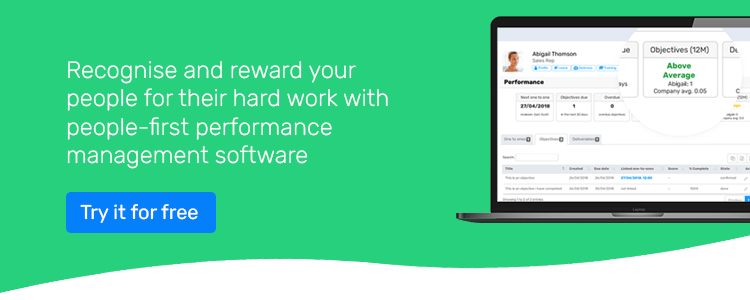Here’s a terrifying fact. Work is the biggest cause of stress in our lives. Mental health charity, Mind, found that earning a living causes more problems than money worries, relationship problems and health concerns. And it’s easy to see why. We’re stretched more than ever before with staff shortages, rocketing costs, regulatory changes and uncertainty experienced by organisations across the country.
What is workplace stress?
The HSE defines workplace stress as 'the adverse reaction people have to excessive pressures or other types of demand placed on them'. In simpler terms, workplace stress is the way people feel when they can’t cope with expectations of their jobs. These expectations might be tight deadlines or an overload of work. They may also include situations such as a fear of doing the wrong thing or upsetting a colleague.
It’s important to remember that stress is different for everyone – what one employee finds stressful might be stimulating to another employee. It’s also important to remember that the way in which someone responds to stress can be a result of their personal situation. For employees who are having a difficult time in their personal life, even a small amount of workplace stress can be enough to tip them over the edge.
Why is workplace stress a problem?
Workplace stress costs employers. And it’s costing them more than ever. Mental health research from Deloitte has found that the cost of poor mental health has increased to an enormous £56bn per year, up from £45bn when measured in 2019. Stress, caused by presenteeism, an always-on culture and a lack of employee support is a major contributor towards mental ill health. If left unchecked, workplace stress can cause:
- increased employee absences
- higher staff turnover
- lower product or service quality
- lower customer satisfaction
- poor morale and a weak company culture.
How can I tell if my team is stressed?
As a people manager, you are in a unique position. Get to know your team well and you can start to recognise the signs of stress. Don’t rely on your staff to tell you they’re feeling stressed. By this point, their productivity and mental health will already have taken a hit. Keep a careful eye out, and you can help protect your team’s wellbeing.
#1 sign your employees are stressed
Fatigue. We all have tired days but if somebody is coming to work looking consistently over-tired it may be worth a conversation. This is especially important if you notice their tiredness is affecting their productivity, attention to detail and workplace relationships.
#2 sign your employees are stressed
Short temper. Not being able to control your temper is a red flag where stress is concerned. Sudden outbursts and losing control with inanimate objects are signs someone is beginning to crack. This should be addressed urgently.
#3 sign your employees are stressed
Displays of emotion. Some people are naturally more emotional than others and will freely display their emotions. Others will always keep their behaviour uber-professional. The key is to know your team because shifts in emotional patterns may indicate an employee is struggling with their stress levels.
#4 sign your employees are stressed
Change in behaviour. Again, it’s important to know your staff. Perhaps you have a typically sociable employee who is withdrawing, or a colleague who usually eats substantial meals skipping lunch and working through. Noticeable changes in behaviour are a sign that something may not be right.
#5 sign your employees are stressed
Change in appearance. When people are stressed, they are usually dealing with a multitude of problems inside and outside of work. This may mean they pay less attention to themselves which can show in their general appearance. Again, knowing your staff and how they usually present themselves is important here.

If you have noticed any of these signs that your employees are stressed then there may be something there that needs addressing. You can start with our quick quide on 10 ways to help you stress less at work which might help them overcome some of the little niggles that are getting to them at work. If the stresses are continuing to manifest themselves its important that there are lines of communication in place, and the employee knows what these are, so that they feel comfortable expressing how they are feeling and that it is going to be supported.
What should I do if my employees are stressed?
If you have noticed signs that your employees are stressed, it’s likely they need help in some way. It’s especially important that there are lines of communication in place, and the employee knows what these are. This will help your employees feel comfortable expressing how they are feeling and know that they will be supported.
Here are some resources that may help:
10 ways to deal with workplace stress
What is burnout and how do you prevent it?
What to do when you have an employee off sick with stress
Our Mental Health at Work Guide contains facts, advice and guidance to support your team. You can download it here.
Charities such as Mind have a wealth of information to help you support your employees with stress and its impact on mental health. More importantly they have advice to help you prevent it becoming a problem in the first place.
Professional support can make a world of difference. An HR consultant will be able to advise if factors such as job design or workplace culture are causing workplace stress and whether an EAP or training would be a worthwhile investment for your SME. Our directory of HR consultants is a great place to find a reputable HR Partner.

Author: Laura Sands
Laura is a writer who enjoys getting into the detail of subjects and sharing that knowledge with snappy, interesting content. When not typing away, she enjoys walks in the woods and curling up with a good book and mug of something hot.




